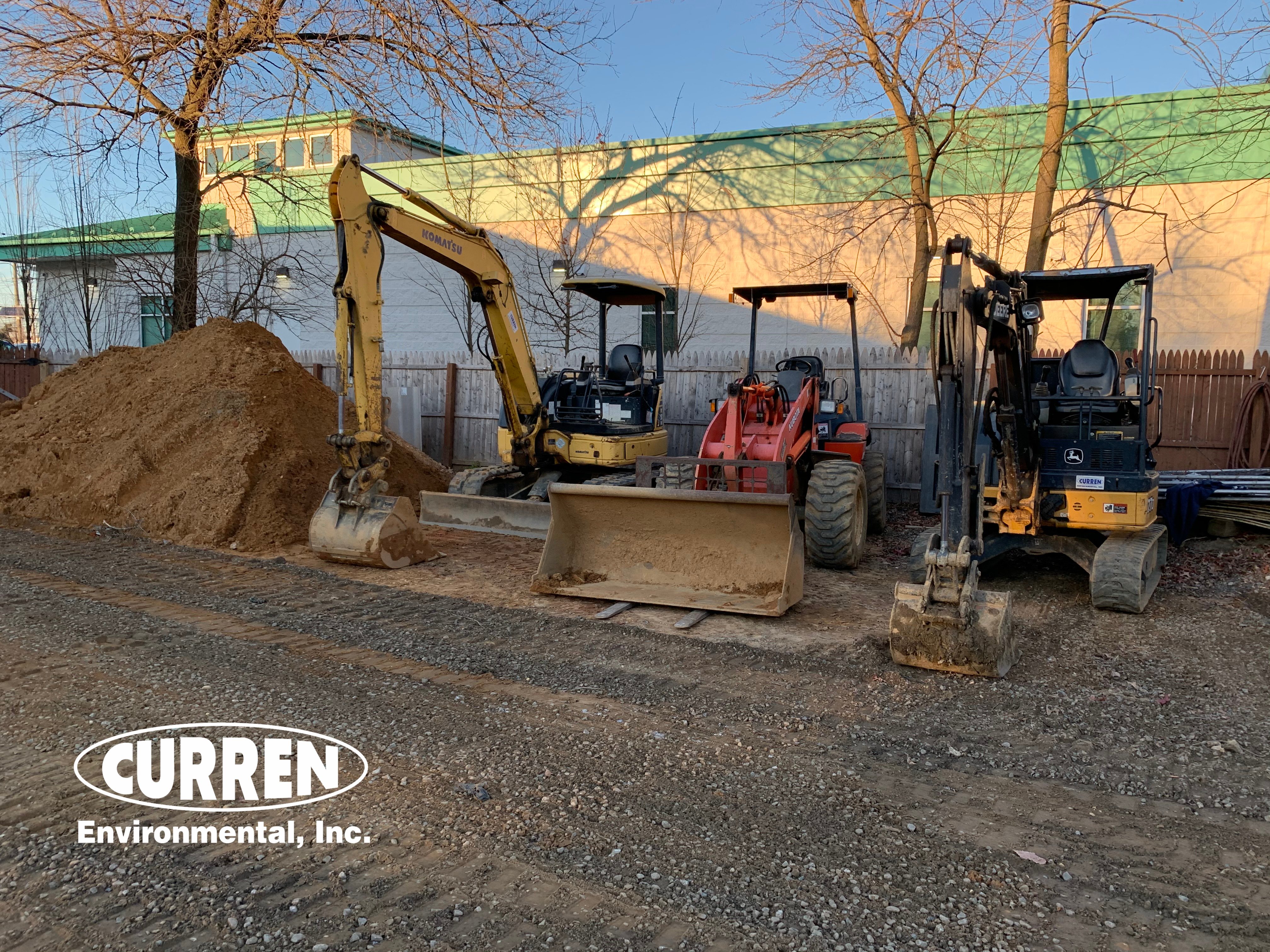Due diligence is what a party does to assess a property prior to purchase. Due diligence would include a title search, home inspection, radon testing and a tank sweep.
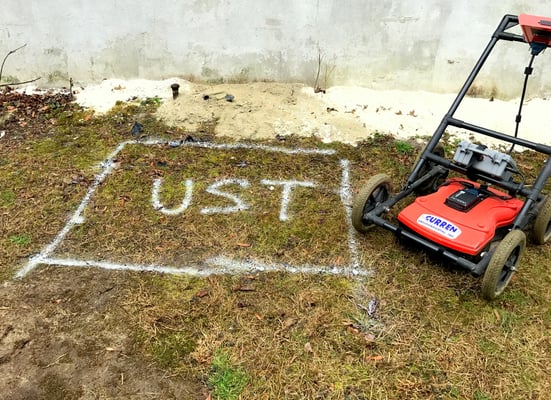
To be clear, the concern with petroleum storage tanks is they leak product (oil) into the ground and sometimes groundwater, which can require remediation (cleanup). The RP (Responsible Party) for cleanup is the property owner, even if they never used the tank, did not know the tank was present or were told that the tank didn't leak when they bought the property.
To avoid the above, you do a tank sweep to protect your interest when purchasing a property, residential or commercial.
What happens after you do a tank sweep and an undisclosed tank is found?
Eighteen percent (18%) of the time, the seller suddenly recalls that yes, an oil tank is present, sometimes they have paperwork, sometimes they do not. 100% of the time the buyer is upset they paid for a tank sweep and that the seller was not honest about the tank, so they question what else in the transaction is not 100% truthful.
100% of the time they have nothing that actually proves the tank did not leak, if they did like an NFA or a report with laboratory testing they would have supplied it previously. Because why would a seller want a buyer to do a tank sweep on a property the seller knows a tank was removed and has proof it didn't leak. Sorry, that is a rhetorical question. For you buyers out there, some properties have more than one buried tank, no lie, we have seen it before.
100% of the time the found tank must be removed and tested.
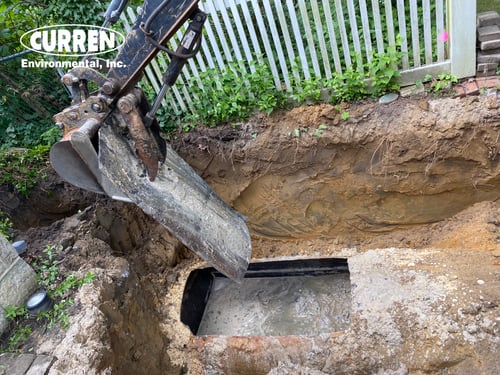
Greater than 60% of the time we find contamination, there are many variables that direct this outcome, of the leaks some need remediation some do not.
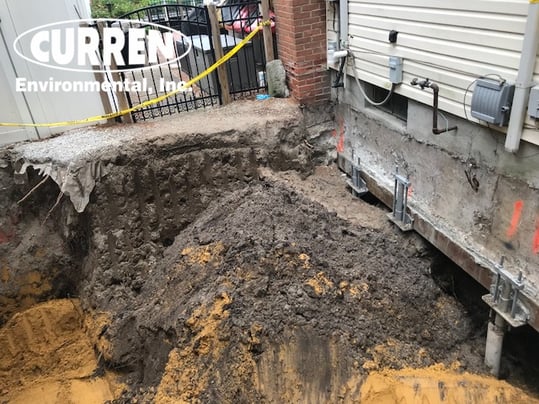
Sometimes the owner of the newly found tank doesn't want to do anything. The deal clearly falls apart as contracts commonly have clauses to rescind the contract regarding environmental or structural issues. The seller is now tasked with dealing with the tank, there is also now a record that the property was under contract and then out of contract. Future perspective buyers can trace the paper trail to find out why the sale did not go through. Rarely ever does the home sell with the tank in the ground, the ones that do typically end in litigation, we know because we wind up getting called by the buyer to assist after a neighbor or other good Samaritan tells the new owner that there is an underground oil tank. The photo below 100% real, the writing suddenly appeared before settlement.
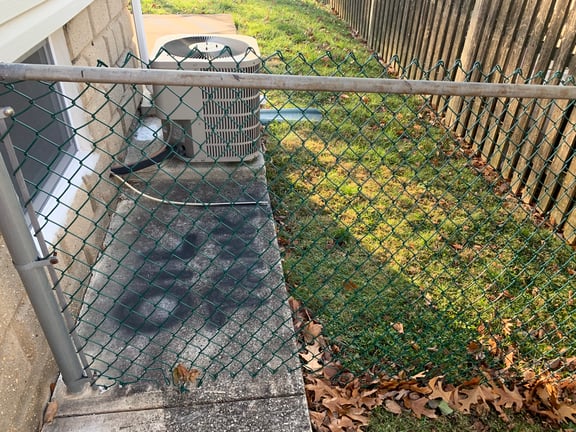
When Curren finds a buried tank during a tank sweep about 60% of the time we are contracted to remove the tank. Some sellers accept a found tank for what it is, an obstacle to selling the home. Yes the seller is upset, but most understand they wouldn't buy a home with a tank. Some are upset because they did a tank sweep and the tank was missed. More about missed tanks , shortly.
After we find a tank about 40% of the time the sellers hire someone else to remove the tank, we get blamed for finding a problem. 90% of the time the buyer, our client wants us involved with reviewing the contract for removal and the post tank removal report, so many times the contract doesn't include testing because the seller doesn't want to find a problem, they just want to remove the tank. We had a site where an environmental attorney (yes someone well versed in environmental liability) had a tank filled in place without testing. This is from someone who knew that if you test you might find a problem. We had to reverse engineer the prior tank closure and test, yes some tank issues can get complicated.
What about missing a tank after a tank sweep?
First, most sites will not allow 100% coverage. Why, well things get built over buried tanks, hot tubs, sheds, additions, woodpiles, boats, cars etc. If you can't access the area, you can't inspect it. Incompetence (lack of experience & training) of the individual performing the scan can also give bad results. In short, if you don't actively remove tanks, you can lack necessary skills to provide a thorough tank scan, in 28 years of dealing with tanks even today we find unique tank situations, experience is invaluable.
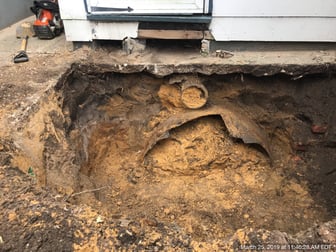
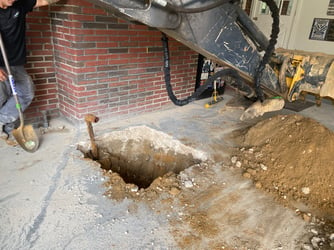
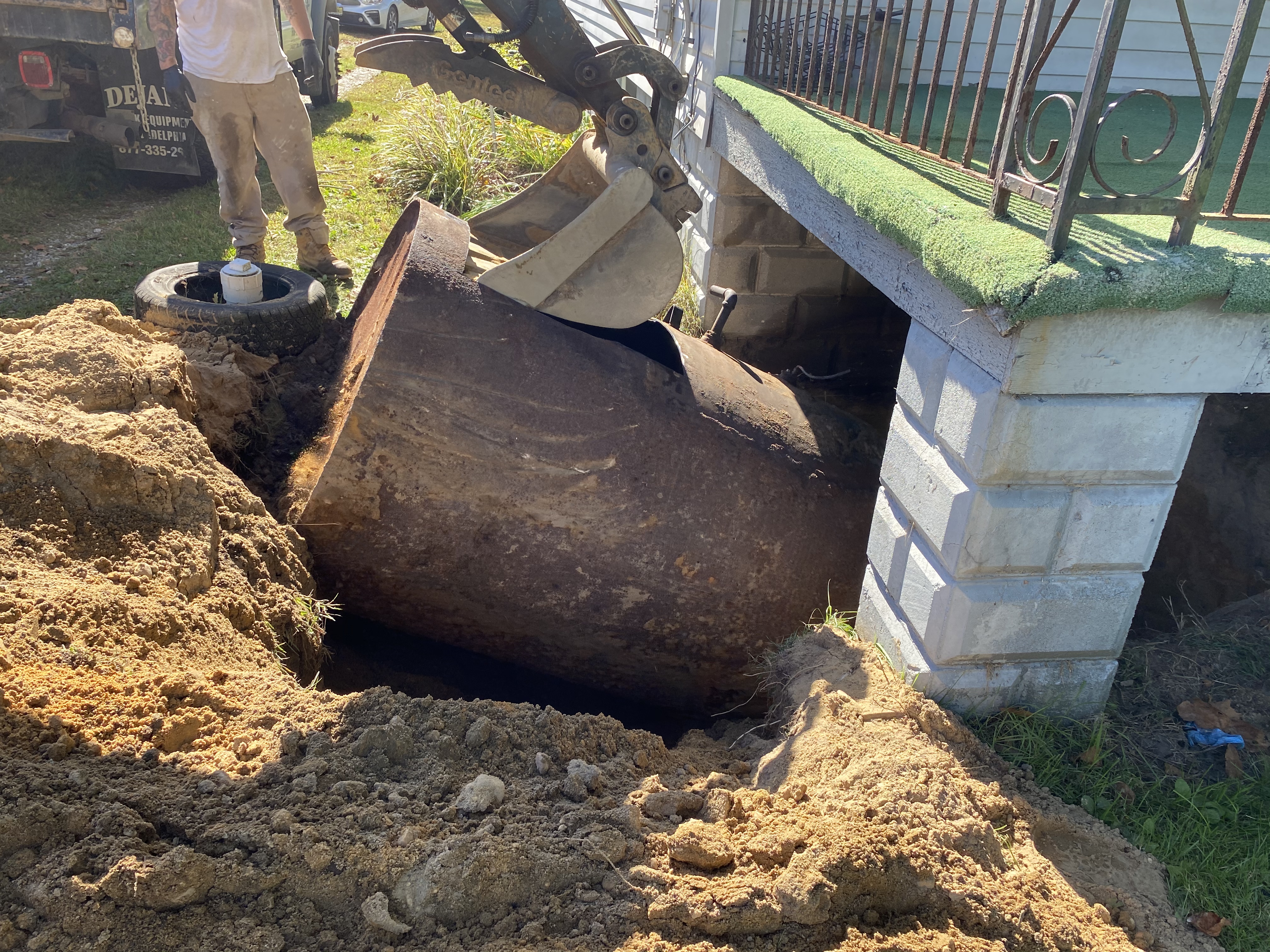
Equipment failure can be another reason a tank sweep fails. Metals detectors which cost about $1,000 to buy and are used for the $200 tank sweep, hence low cost equipment not used for locating tanks, can commonly miss tanks. A metal tank buried near a chain link fence will confuse a metal detector. and can miss a tank.
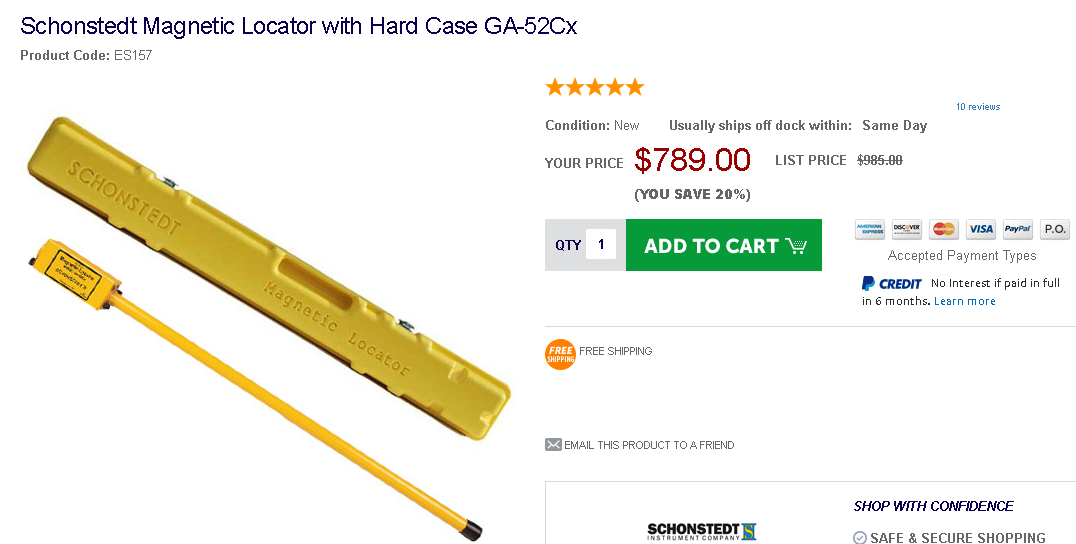
Ground Penetrating Radar (GPR) is what is used on commercial sites because it is more thorough. Really a mixture of tools is needed for a thorough evaluation. GPR provides a graphic image of buried objects. The image on the right side of the screen shows the radar signal of a found tank.
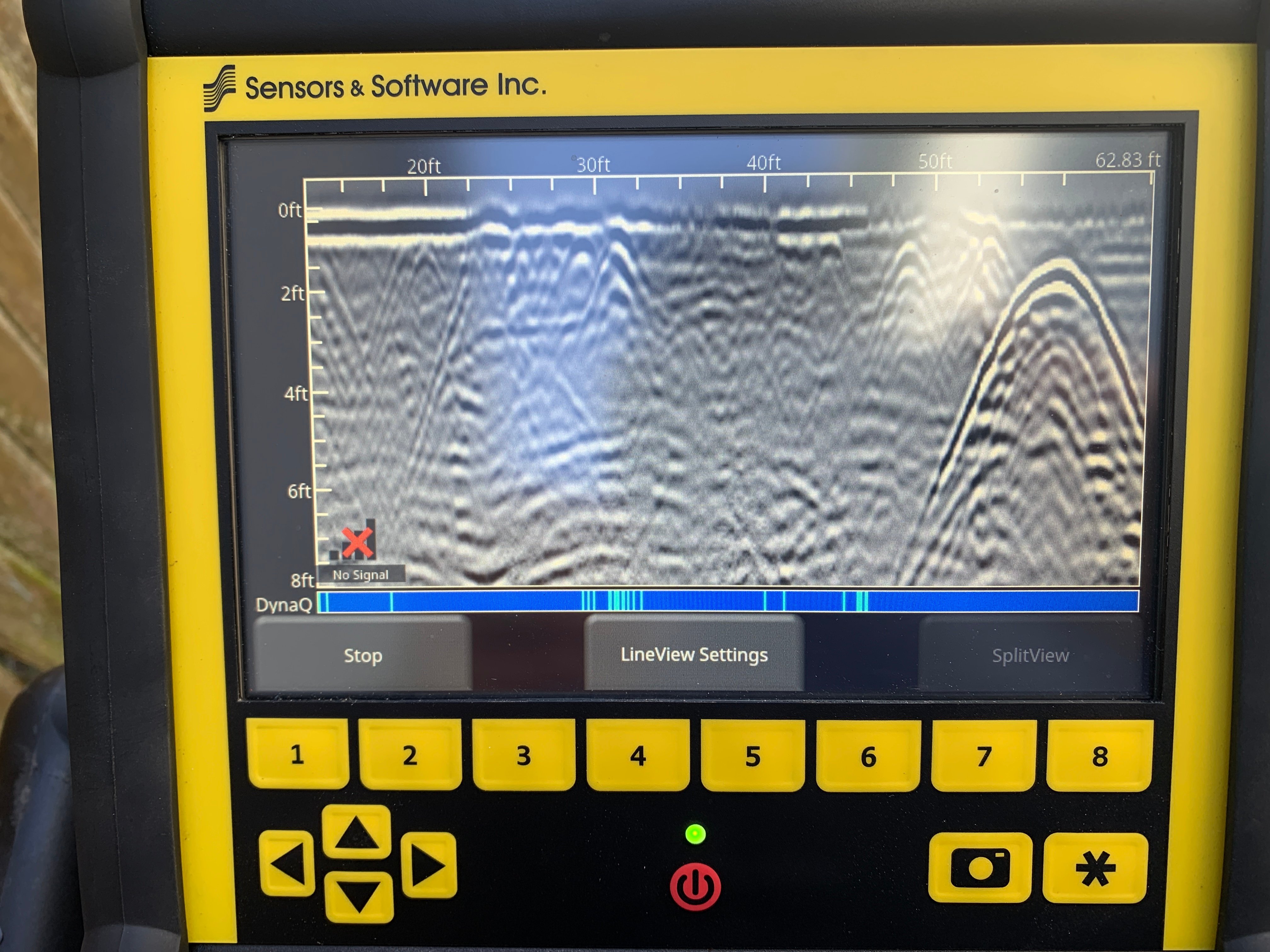
The photo below shows a typical set of tools utilized for a Geophysical evaluation or what people commonly call a tank sweep. You want a full tool box.
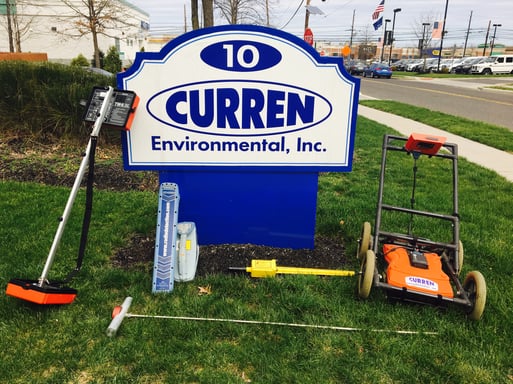
You don't hold tank licenses in Delaware, New Jersey & Pennsylvania without having some level of expertise. You don't remove tens of thousands of tank over 20 plus years and not gain experience.
Call the Experts 888-301-1050
